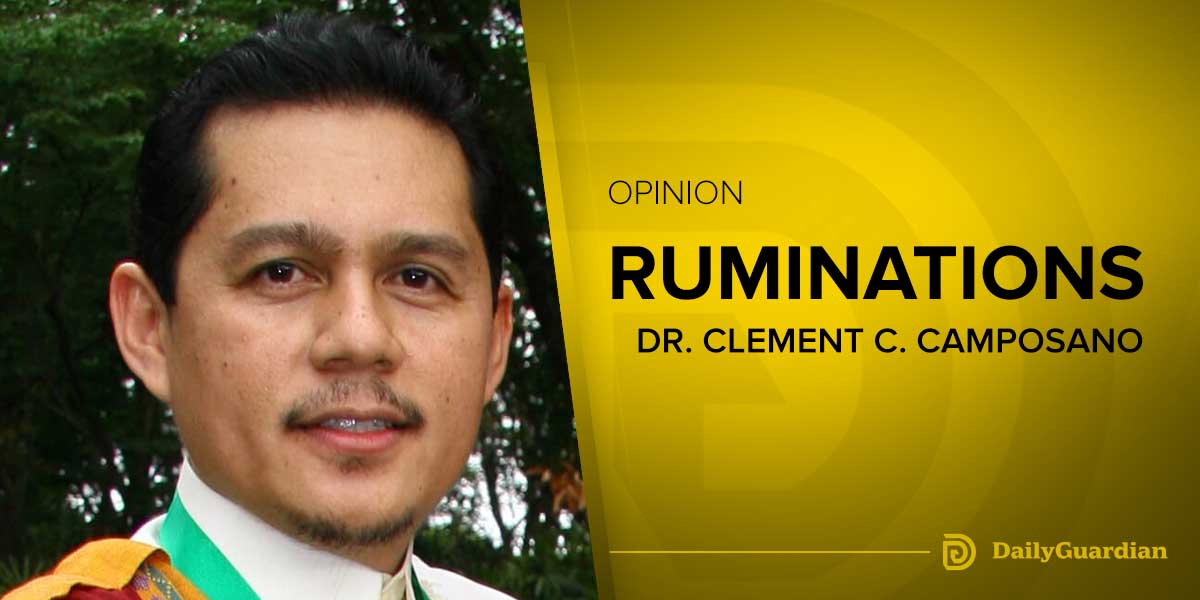 By Fr. Roy Cimagala
By Fr. Roy Cimagala
THIS is the challenge I am having at the moment, what with a surge of people coming with problems of worries, fears, doubts, sadness and the like eating them up. Yes, the Covid pandemic plays a big part in this disturbing development. And so how can I inject hope and boost their morale when many people obviously are sinking in these departments?
I know that in the end the ultimate source of hope and morale is faith and trust in God who takes care of everything. But how can I effectively deliver this message to people in different kinds of conditions and situations?
I am no doctor, psychologist or psychiatrist. And so I don’t prescribe medication nor do some psychological or psychiatric therapy. As priest, I know my focus would be on the spiritual side of the people. But since people are body and soul, material and spiritual, I have to know a little—just the most basic—about medicine, psychology and psychiatry.
Yes, I can only give pieces of spiritual and moral advice, but I need to see to it that these pieces of advice would really sink in. To avoid should be to just indiscriminately dish out these pieces of advice not realizing, for example, that they are already overwhelming the person involved, or that they are regarded as impractical, etc. There can be many other possibilities when these pieces of advice would be found ineffective.
But first things first. I imagine that priests like me should really be spiritually strong and healthy to be truly helpful to the others. He should be knowledgeable enough of the many possible conditions that our wounded humanity can fall into and of how to relate these conditions to the original source and ultimate ideal of how we should be as created by God, redeemed by Christ and taken care of by the Church. That already presumes a lot of things—endless things, in fact.
We can never do enough in this regard, but we just have to try and try. Continuing study and nourishing one’s spiritual life are indeed a must. We have to study, for example, the different temperaments of the people, the kinds of consciences they have, so that with that knowledge, we can adapt those spiritual pieces of advice to the way people are.
The art of accompaniment that follows the law of gradualness has to be mastered. We should be very attentive to the immediate needs of the people before we can proceed to address the higher and more important needs. These immediate needs are often of the material and temporal type that have to be somehow resolved before we get into the spiritual needs.
We have to distinguish the different types of people also. Some can have delicate, even scrupulous consciences that need to be handled very delicately and with a lot of words of encouragement, assurances and comfort. Others can have the opposite kind of conscience, the lax one that needs to be dealt with appropriately.
The most important thing to remember is that everyone should be convinced that it is God who takes care of everything, regardless of how things are in the world, and that there really is nothing to worry.
Definitely, for this spiritual and supernatural message to sink in, we cannot and should not neglect the spiritual and supernatural means. Recourse to these means should be given priority without neglecting the human and natural means.
Email: roycimagala@gmail.com




















